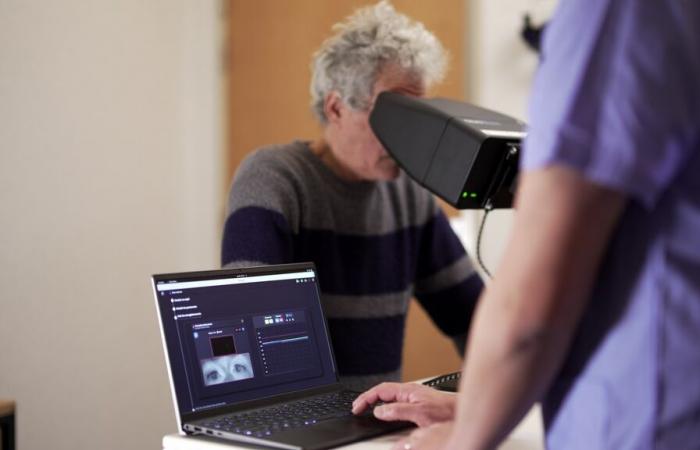
During CES 2025, NeuroClues, a Franco-Belgian start-up specializing in the detection of neurological diseases, announced that it had complied with the European MDR (Medical Devices Regulation) applicable to medical devices. This allows it to affix the CE marking to its eye-tracking solution diagnosing neurological disorders, and thus market its product in the Old Continent.
Extracting biomarkers from eye movements
The start-up aims to enable faster diagnosis of neurodegenerative diseases. According to several studies, patients with Parkinson’s disease have lost 50 to 70% of their dopaminergic neurons, responsible for coordinating movements, at the time of diagnosis. NeuroClues then developed a device equipped with an eye tracking solution, which uses artificial intelligence tools to analyze eye movements and extract biomarkers in a few minutes.
More concretely, a headset controlled via an interface can record up to 800 infrared images per eye per second. The data then extracted provides measures of latency and auto-error, which can then be compared to the standard deviation of a healthy population. This solution, which includes both the headset, the software and a cloud data storage offer, is based on a leasing model.
Partnerships in France, the Netherlands and the United States
For now, NeuroClues has established a partnership in France with the Brain Institute, where a prototype is tested by several dozen patients suffering from Parkinson’s disease each week. The medtech also works with the University of Nijmegen, in the Netherlands, and with two American institutions with patients suffering from movement disorders. Finally, NeuroClues could integrate tests into the “Constances” cohort, supported by France 2030 and made up of 22,000 participants aged 55 and over.
The start-up now plans to deploy its solution in hospitals and clinics in Europe. It could thus develop databases with the University of Siena (Italy) for different neurological disorders, such as “Parkinson’s disease, Alzheimer’s disease, cerebellar syndromes, myasthenia gravis and myopathies”. After raising 5 million euros at the end of April, the medtech plans to close a series A by the end of the semester, specifying that two thirds are already committed.
Selected for you





